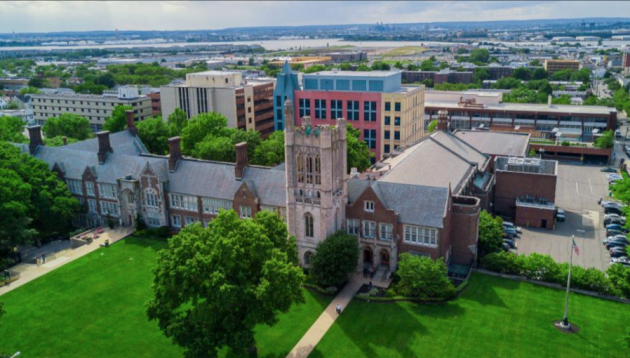New Jersey City University ranks No. 1 in New Jersey and No. 10 in the country on CollegeNET’s 2023 Social Mobility Index.

By John Heinis/Hudson County View
This ranking represents a steady improvement on the national index: In 2021 they were at 105th place and 44th place in 2022.
“We are grateful for this substantial recognition which further demonstrates and affirms the power of NJCU’s distinct and differentiated mission and the indispensable role it serves to the extraordinary community we are privileged to serve,” NJCU President Andres Acebo said in a statement.
“We are proudly linked and tethered to a mission — a mission of economic mobility, of upward social mobility, of taking a socioeconomically diverse population and historically underserved and marginalized community and empowering them. That is what NJCU does every day for our community — and has for nearly a century. There is no denying the power of higher education to change the trajectory of a family, particularly for first generation students; my own life story is a testament to it.”
The SMI measures the extent to which a college or university educates more economically disadvantaged students — with family incomes below the national median — at lower tuition and graduates them into good paying jobs.
The development of the SMI has revolutionized the way success is viewed in higher education institutions.
“I am pleased that these rankings demonstrate what we at NJCU have always believed — and what we have doubled down on in the last year – that higher education should be a transformative experience that empowers individuals to overcome barriers, systemic and personal, and realize their promise,” Acebo added.
“This recognition is a testament to the hard work and dedication of our faculty, staff, and students, and the significant efforts undertaken over the last year to know and intentionally honor who we are privileged to serve..That has been the truth behind our mission’s extraordinary resilience and it lies in the heart of the unprecedented reforms we have realized in the last year to drive student success and to truly meet our students, their families, and our communities where they are.”
CollegeNet’s SMI differs from most other rankings in that it focuses directly on the factors that enable economic mobility, rather than arbitrary or irrelevant criteria such as percentage of applicants denied.
The institutions that educate more economically disadvantaged people — those with family incomes below the national median — and do so the best at lower tuition so that they graduate into good paying jobs, will rank higher according to the SMI.
NJCU serves the most socioeconomically diverse student population in the state with a reported median household annual income of the students standing at $42,200 — the lowest of New Jersey’s four-year public colleges by a considerable margin, and 54 percent of the university’s students are first generation college students.
However, 10 years after graduation, students earn 22 percent more than the national average income.








